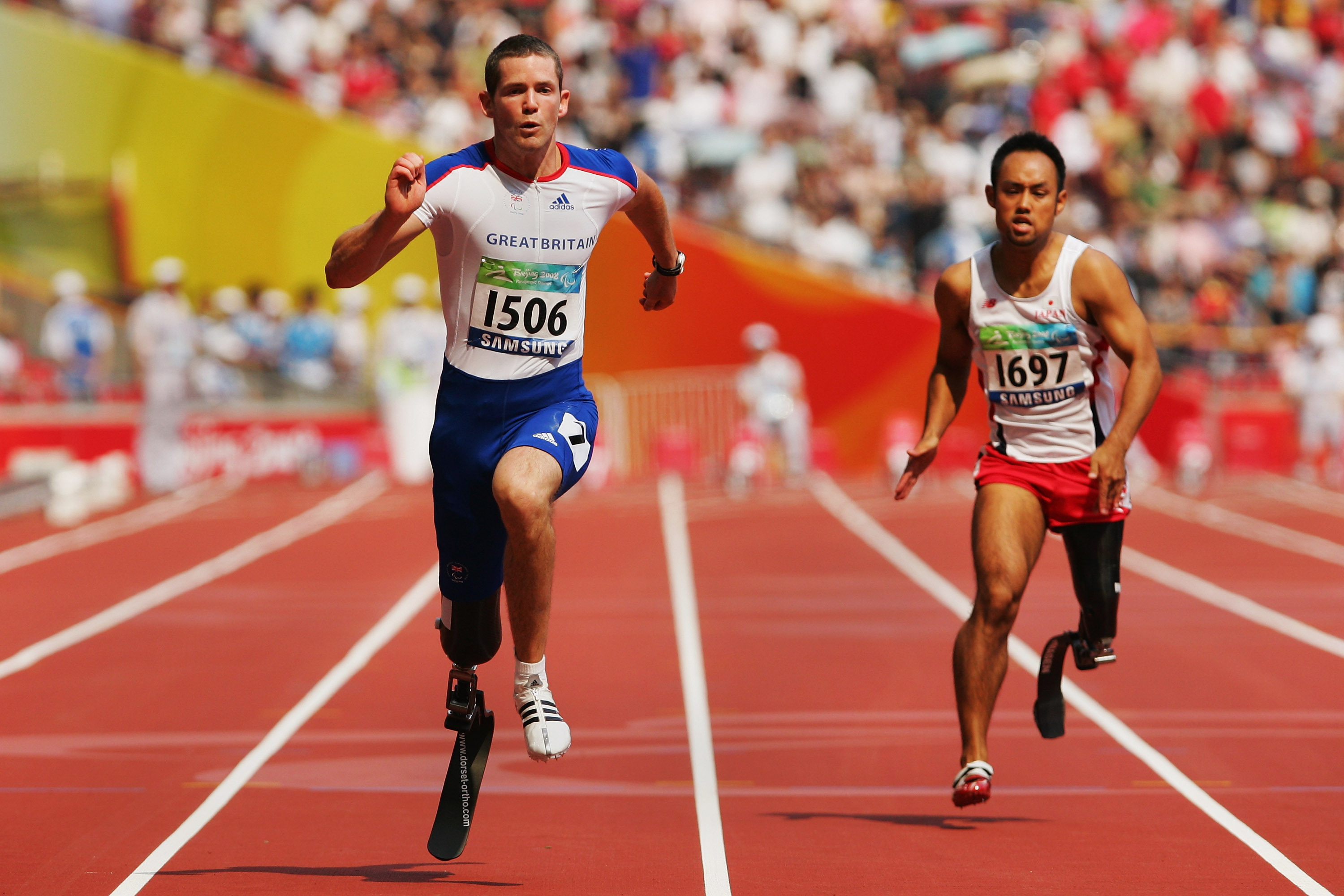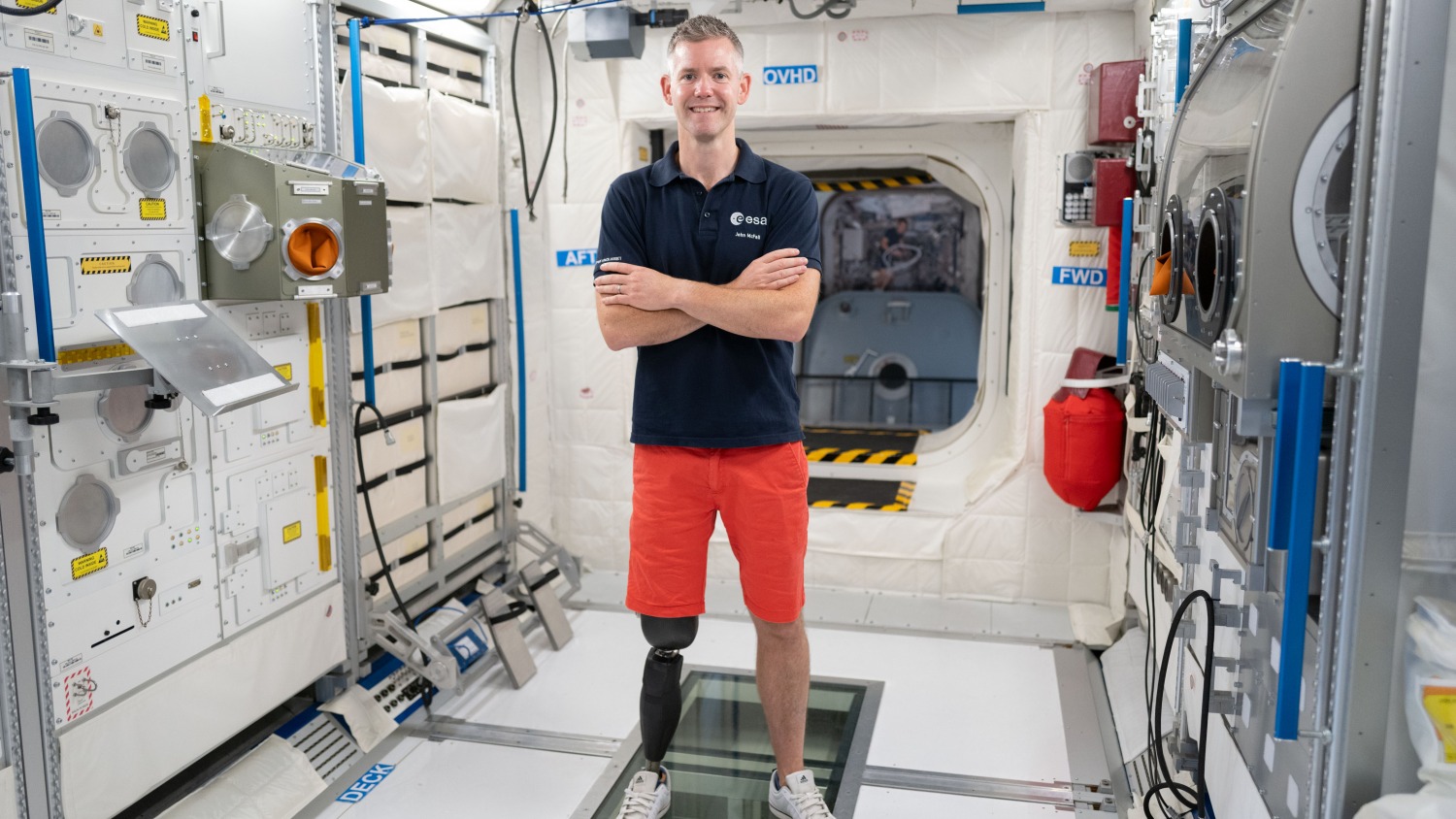Astronaut John McFall explains how the Paralympic Games shaped his space career (exclusive)
"I was that annoying kid who was in every sports team."

Astronaut John McFall medaled in the Paralympics in 2008, and the lessons he learned from that experience are helping him today as a person who may one day fly to the International Space Station.
"I was that annoying kid who was in every sports team, but I didn't necessarily have aspirations of being an Olympic athlete. Following the loss of my my leg, I got back into running, and sport was a huge part of my life," McFall told Space.com in an exclusive interview Aug. 18. (The Paralympics for 2024 begin today, Aug. 28).
McFall, a European Space Agency (ESA) reserve astronaut, was selected in 2022. He is part of a group of people who have done astronaut familiarization training with ESA, but he hasn't been assigned to a mission (or completed all training for space); this won't happen until ESA has an identifiable need.
In the meantime, McFall has been working on finalizing the "Fly!" study that aims to send an astronaut with a lower leg prosthesis, like the prostheses he uses himself, to the International Space Station (ISS).
The study found no major issues with a lower-leg prosthesis itself, or for performing duties with such a disability. The results are not quite a clearance for flight, but they show that most questions have been answered and that, in the future, McFall may be able to do an ISS mission.
When McFall was invited to compete in the 2008 Paralympics, he said the honor of the opportunity was immeasurable, but by nature he is "not a great competitor" unless he is looking to set a standard against his own work.
Breaking space news, the latest updates on rocket launches, skywatching events and more!
"I get incredible performance anxiety," he said.
McFall's 100-meter race was over in just 12.5 seconds, although this followed roughly eight years of rigorous training. He recalled the stress of preparing for "this impending event that millions of people were going to be watching around the world, and that I was going to be put on this stage and do this one thing."
McFall earned a bronze medal. His thoughts crossing the finish line, however, were on a different matter, given the stress of preparing and performing: "The very first thought that I had, the emotion that I had when I crossed that finish line, was relief."
Preparing for the race was one of the factors that eventually brought McFall into the space world, as he took the effort he put into becoming an athlete to apply to medical school and subsequently to specialize in trauma and orthopedics. McFall's lived experience as a prosthetic user has also been quite useful in formulating the "Fly!" study, as he combined his medical knowledge and orthopedics expertise to work with other study authors on making the case for an astronaut with a prosthesis to fly to the ISS.
"What you put in — the effort [you put] in — you get reward back," McFall said. "It was a real life lesson for me."

Elizabeth Howell (she/her), Ph.D., was a staff writer in the spaceflight channel between 2022 and 2024 specializing in Canadian space news. She was contributing writer for Space.com for 10 years from 2012 to 2024. Elizabeth's reporting includes multiple exclusives with the White House, leading world coverage about a lost-and-found space tomato on the International Space Station, witnessing five human spaceflight launches on two continents, flying parabolic, working inside a spacesuit, and participating in a simulated Mars mission. Her latest book, "Why Am I Taller?" (ECW Press, 2022) is co-written with astronaut Dave Williams.

